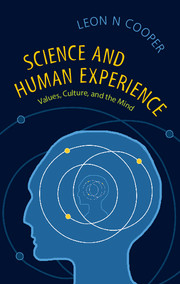Book contents
- Frontmatter
- Dedication
- Contents
- Preface
- Acknowledgement
- Part One Science and Society
- Part Two Thought and Consciousness
- Part Three On the Nature and Limits of Science
- 19 What Is a Good Theory?
- 20 Shall We Deconstruct Science?
- 21 Visible and Invisible in Physical Theory
- 22 Experience and Order
- 23 The Language of Physics: On the Role of Mathematics in Science
- 24 The Structure of Space
- 25 Superconductivity and Other Insoluble Problems
- References
20 - Shall We Deconstruct Science?
from Part Three - On the Nature and Limits of Science
Published online by Cambridge University Press: 05 November 2014
- Frontmatter
- Dedication
- Contents
- Preface
- Acknowledgement
- Part One Science and Society
- Part Two Thought and Consciousness
- Part Three On the Nature and Limits of Science
- 19 What Is a Good Theory?
- 20 Shall We Deconstruct Science?
- 21 Visible and Invisible in Physical Theory
- 22 Experience and Order
- 23 The Language of Physics: On the Role of Mathematics in Science
- 24 The Structure of Space
- 25 Superconductivity and Other Insoluble Problems
- References
Summary
Science and the so-called “scientific method” have been deconstructed and critiqued by many in the humanities. Do we have to redo science or is it okay as it is?
This article based on a talk given at a Partisan Review conference “Breaking Traditions 1896 and 1996”, and subsequently published in Partisan Review, 64(2), in 1997.
As a scientist (a hard scientist with a soft heart) before this audience, I believe it is appropriate to quote a remark made by Ed Bloom, a departed colleague. Once, when addressing the Modern Language Association, Ed said he felt like a lion thrown to the Christians.
I was very much influenced by Freud's writings on psychoanalysis, particularly by his theory of dreams. I didn't believe all of Freud's elaborations, but I thought he touched on concepts that were enormously deep, such as the unconscious, the conscious, and the very powerful interaction between them. It is of great interest to me since biologists and neurophysiologists expect to find the underlying physical correlate for such concepts as the unconscious. For example, we might say that the unconscious is related to stored memory and what is conscious is memory in play.
I seem to remember that Freud believed we would eventually find the biological basis for psychoanalytic concepts. But at the beginning of the past century that time had not arrived. So the best way was to proceed without such a basis. He was right.
- Type
- Chapter
- Information
- Science and Human ExperienceValues, Culture, and the Mind, pp. 158 - 169Publisher: Cambridge University PressPrint publication year: 2014

